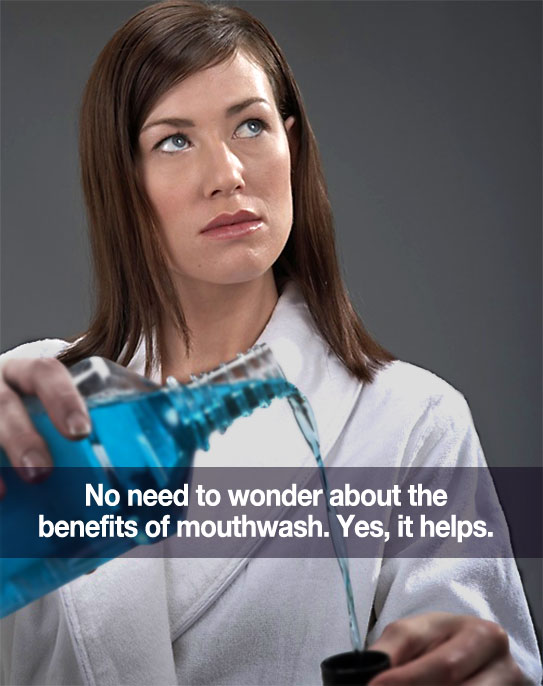Are You Using Mouthwash?

EVEN THE MOST DILIGENT FLOSSERS AND BRUSHERS sometimes forget about the added benefits of mouthwash.
But don’t worry—even if you already brush, floss, AND rinse with mouthwash everyday, you’ll find this content useful. The affect that mouthwash has on your oral health is often dependent upon the type of mouthwash you use.
So, before we get into the do’s and don’ts of choosing a mouthwash, let’s talk a little bit about why we recommend it.
Not only can mouthwashes make our mouths feel and smell fresher, they help prevent cavities and periodontal disease. They also help reduce the amount of plaque and bacteria in our mouths. However, don’t let these facts fool you into depending on mouthwash alone! Brushing and flossing are still essential to our oral health as rinses cannot adequately remove food and plaque on their own—they simply help prevent plaque.
Now, what’s the key difference between all the varieties of mouthwashes? Frankly, some help more than others, and some may even contain ingredients that should probably be avoided. For example, fluoride helps prevents cavities, but sodium lauryl sulfate tends to dry and irritate mouths, especially if you suffer from canker sores.
Be careful when choosing your mouthwash, and feel free to ask Dr. Gemmi or Dr. Middleberg for a recommendation that will suit your specific needs!




Leave a Reply
You must be logged in to post a comment.